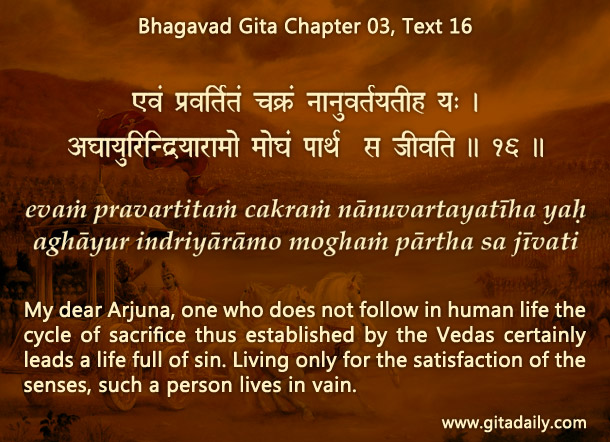Human existence is characterized by a tension between purpose and pleasure. There is a part of us that wants to do something purposeful — that part may prompt us to read a wisdom-text, even if it means forsaking the pleasures of chit-chatting or TV watching. Simultaneously, there is another part of us that just wants to do whatever is pleasurable — that part may push to gorge on tasty but fatty food or mindlessly surf TV channels or social media feeds, without caring that such pleasures are bankrupt of any meaning or purpose. Pertinently, the Bhagavad-gita (03.16) deems such pleasure foolish and futile.
During our life’s routine course, we may not even be aware of the existence of these two parts: the purpose-seeking part and the pleasure-seeking part. But we gain a sense of their presence and their mutual conflict when we consciously strive to discipline ourselves by doing something different from our habitual behavior. Suppose we resolve to wake up earlier than usual so that we can study or exercise or meditate. Then we will be internally confronted head-on with the question, “What do we value more: purpose or pleasure? The purpose of doing something constructive with our early morning hours or the pleasure of sleeping during those hours?” If we value pleasure over purpose, our resolutions will flounder and fail, no matter how frequently or fervently we make them.
To succeed in our resolutions, we need to change what we value internally. For bringing this change, let’s consider how Gita insights can help.
In the Gita’s worldview, our purpose-seeking part correlates broadly with our intelligence and our pleasure-seeking part correlates broadly with our mind. If we nourish our intelligence by immersing it in Gita wisdom, we will start valuing purpose more than pleasure — and disciplining ourselves will become easier.
One-sentence summary:
To become more disciplined, don’t just make resolutions; strive to nourish the part of us that values purpose more than pleasure.
Think it over:
- What are the two parts inside us?
- How do they relate with self-discipline?
- Why do we flounder in our resolutions for disciplining ourselves? How can we succeed?
***
03.16: My dear Arjuna, one who does not follow in human life the cycle of sacrifice thus established by the Vedas certainly leads a life full of sin. Living only for the satisfaction of the senses, such a person lives in vain.
To know more about this verse, please click on the image


pleasure follows purpose
Well-said.